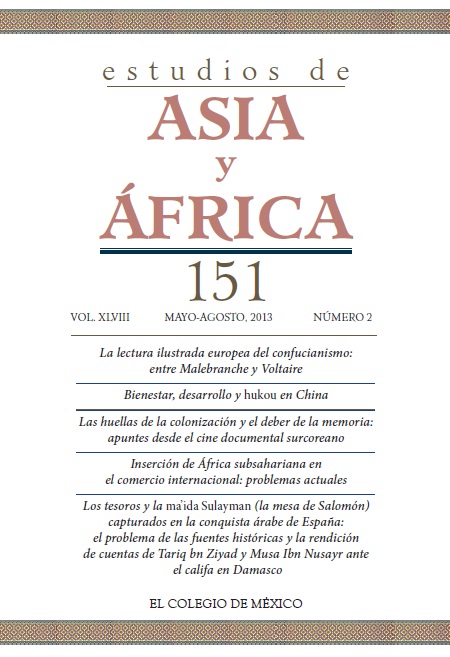Abstract
This article seeks to highlight various issues concerning the strategies adopted by the 18th century Enlightenment philosophers Malebranche, Leibniz, Montesquieu, and Voltaire in their appropriation of Chinese philosophy. We will try to offer some insights into their thinking and show if this assimilation had a formative (important a priori) or corroborative (relevant a posteriori) impact in their needs for an answer to the European theological crisis of their time.
This work is licensed under a Creative Commons Attribution-NonCommercial-NoDerivatives 4.0 International License
Copyright 2022 Estudios de Asia y África


